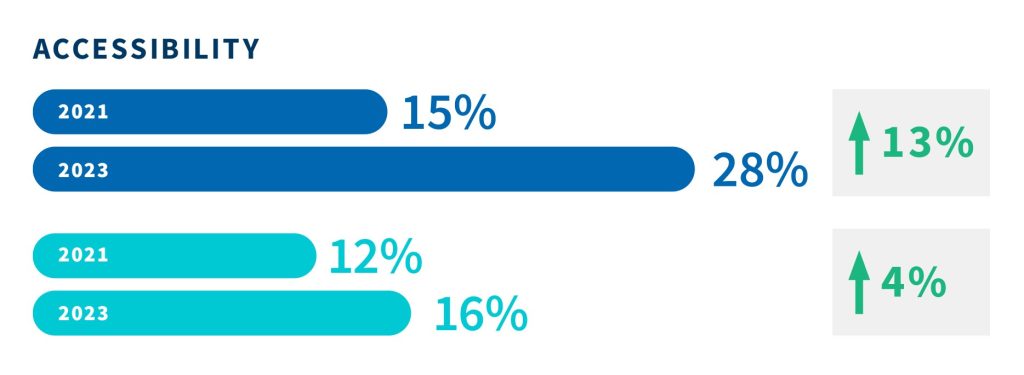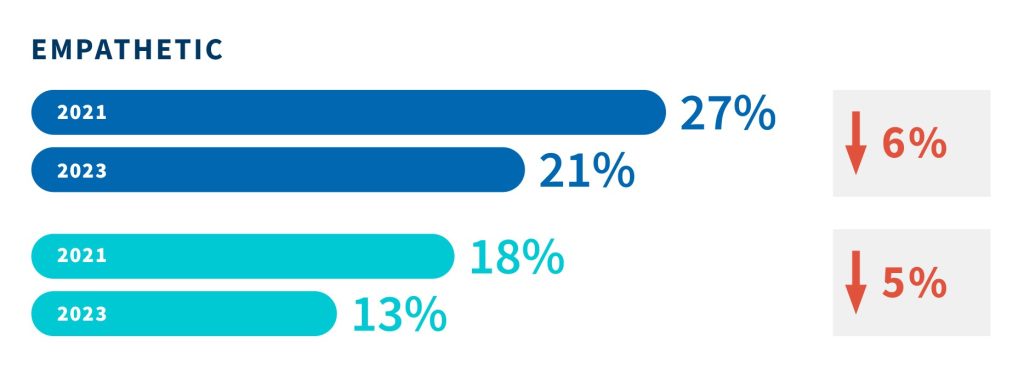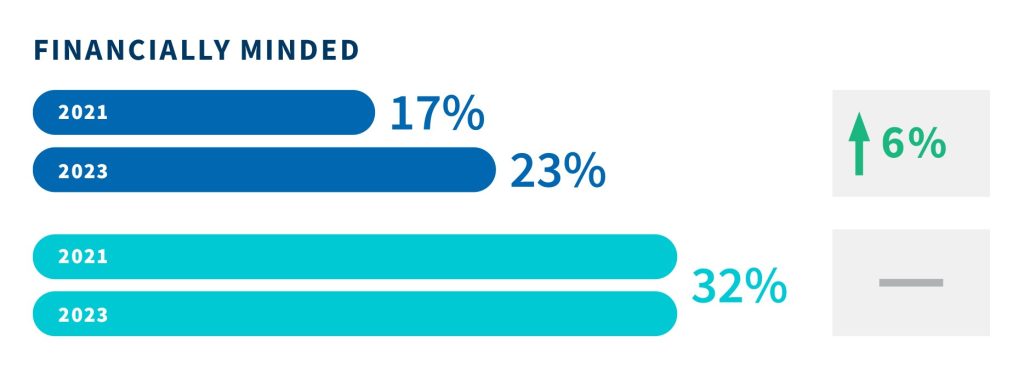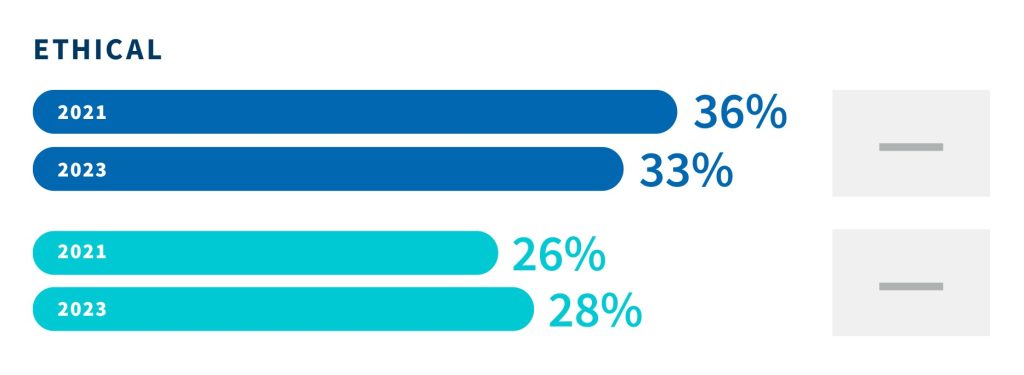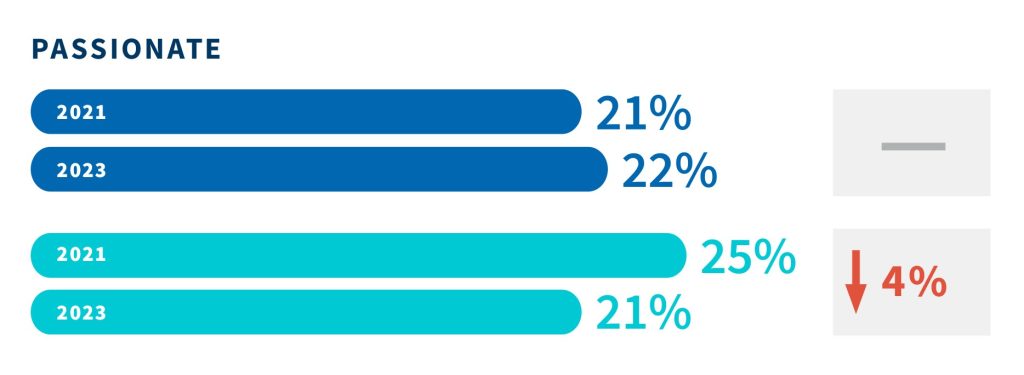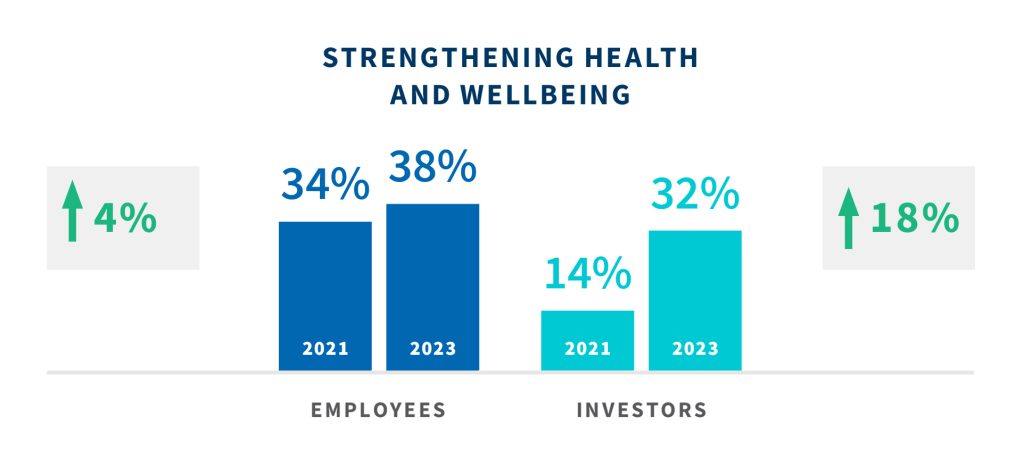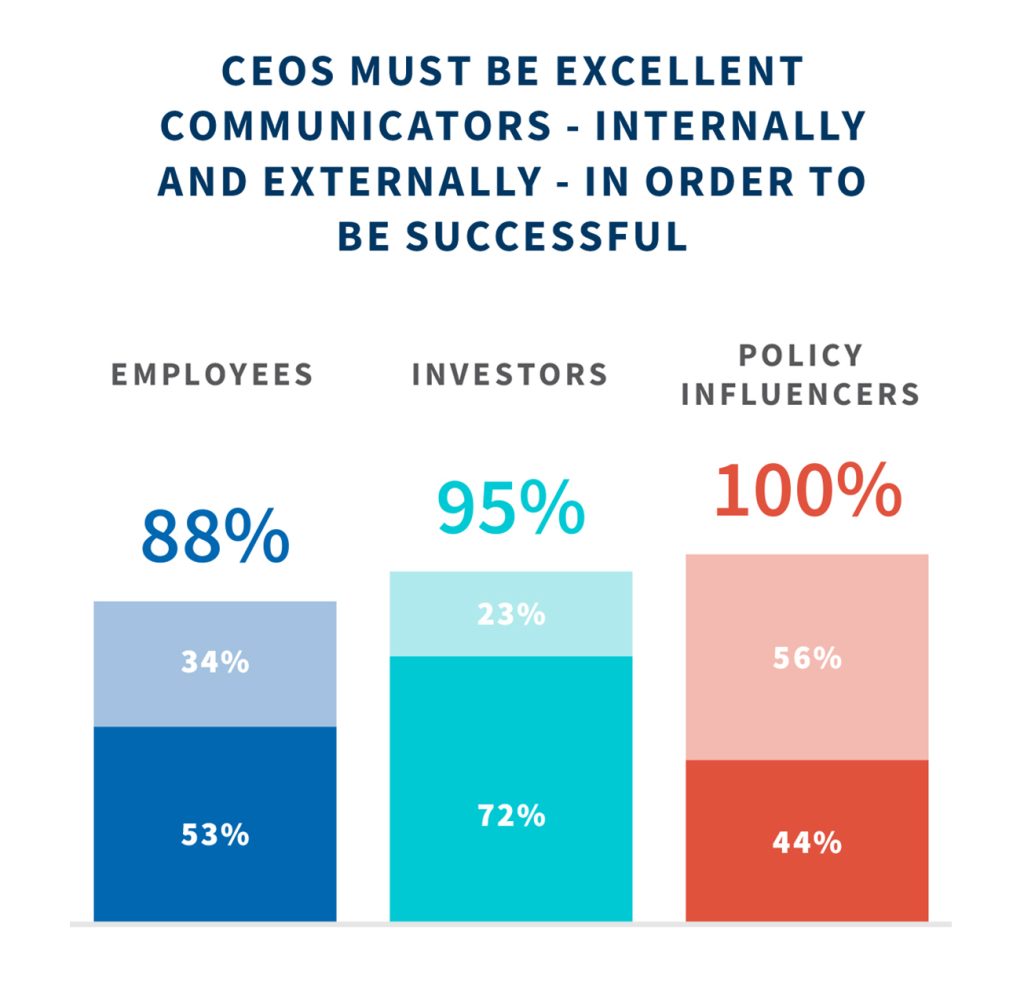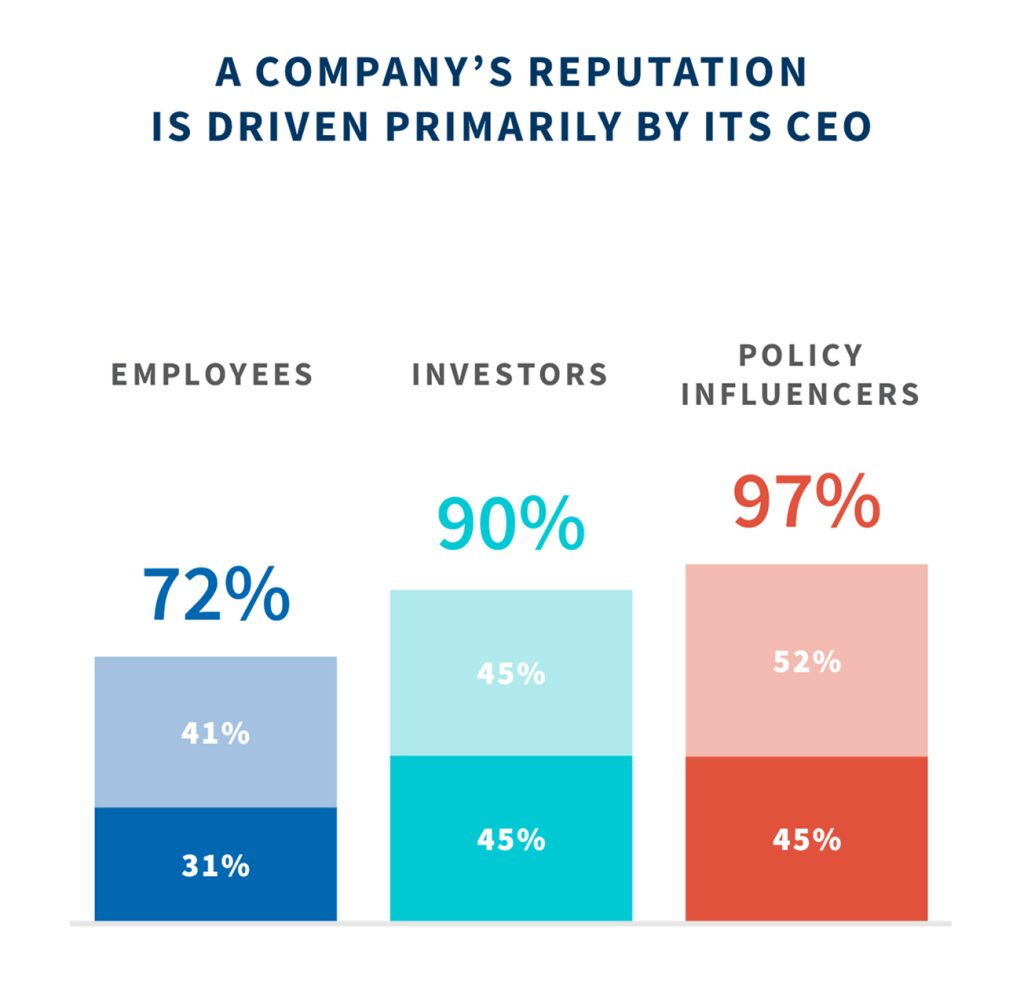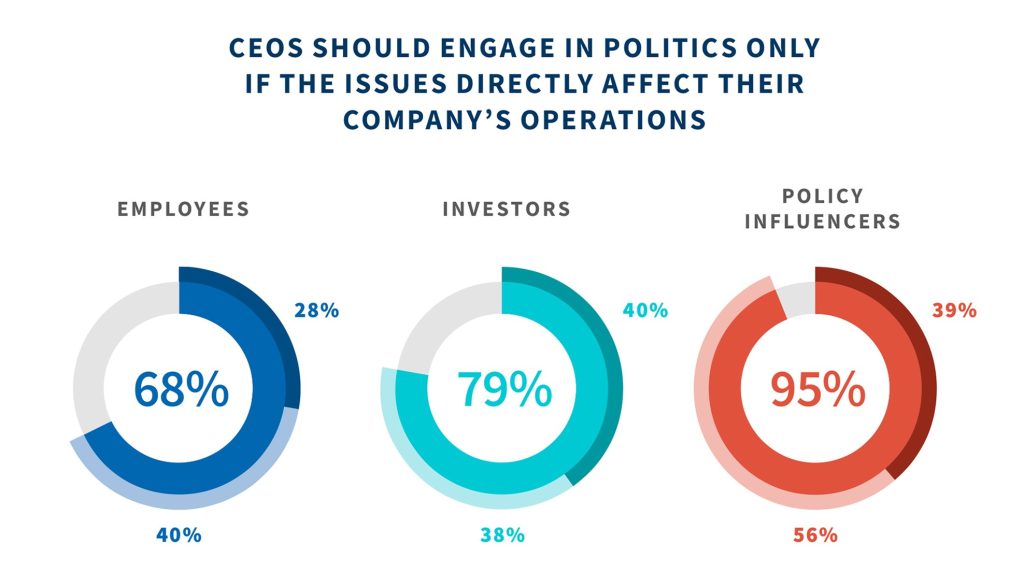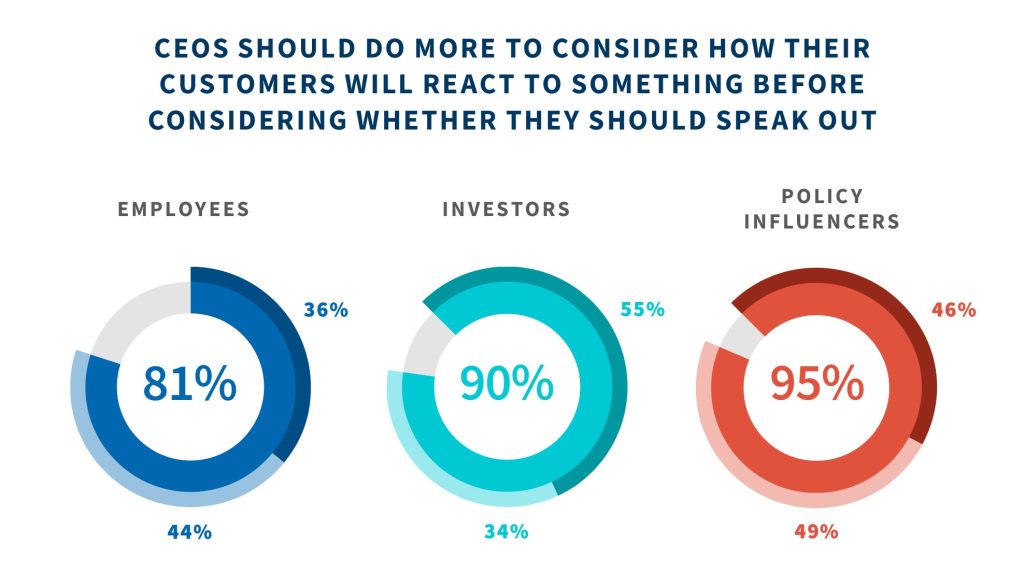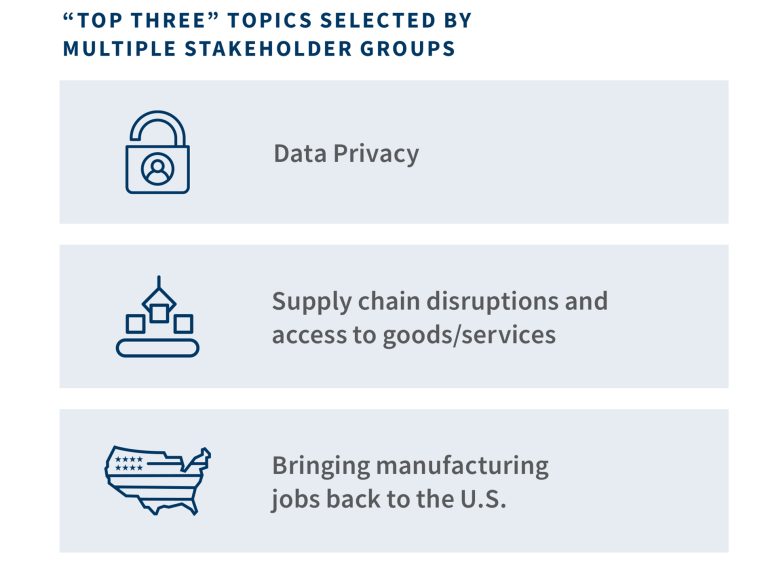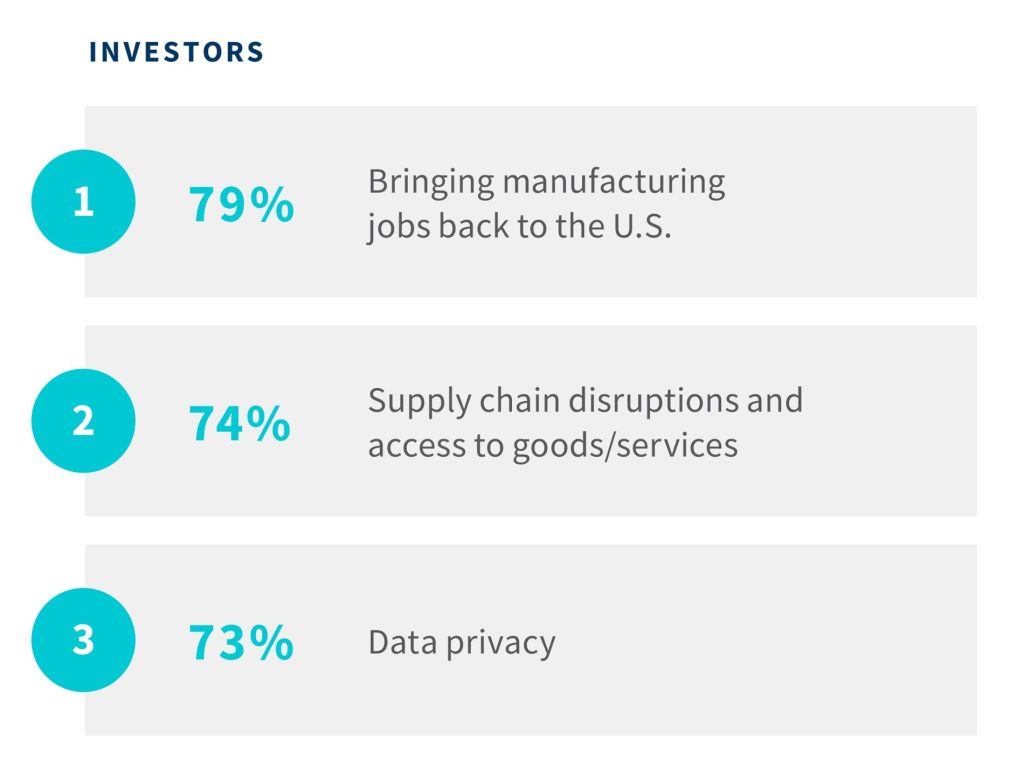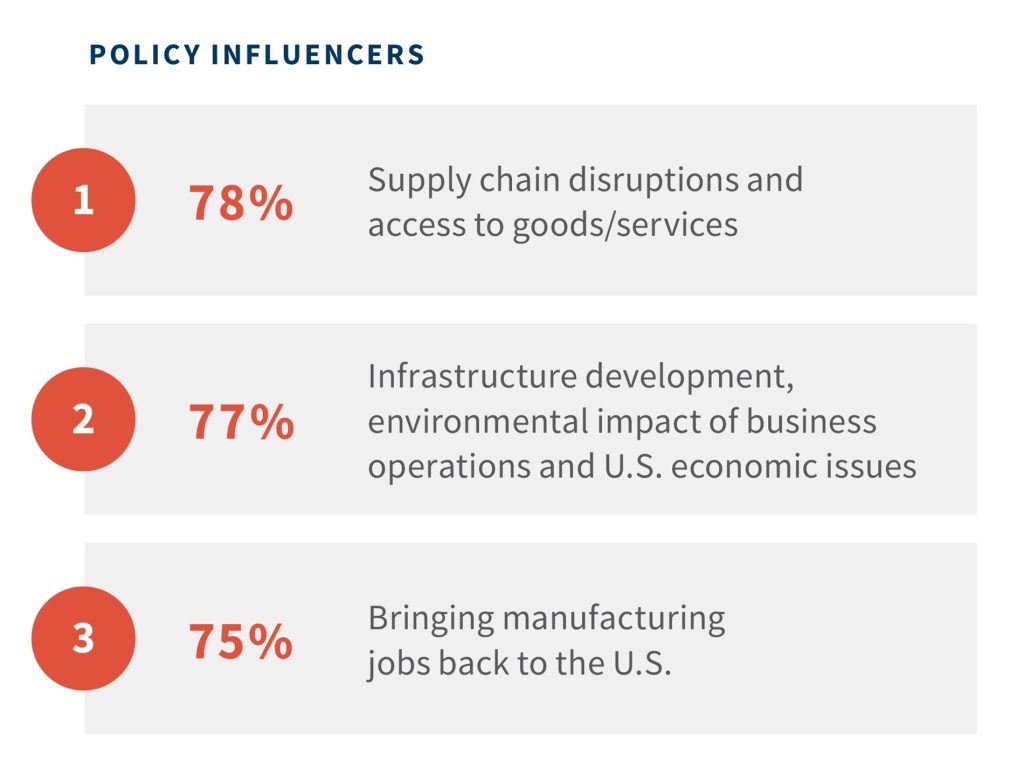CEO Leadership Redefined – 2023
Navigating Stakeholders’ Evolving Expectations of CEOs
As a firm that helps CEOs with their most complex, business-critical issues, FTI Consulting set out in 2021 to better understand the changing demands that a company’s critical stakeholders, including employees and investors, had of executives during a period of social and political unrest amidst the COVID-19 pandemic. We recognize that the world today looks very different from 2021, when we first conducted FTI Consulting’s CEO Leadership Redefined1 research, so we recanvassed employees and investors to determine how their expectations have changed. This year, we also asked a bipartisan group of D.C. policy influencers for their perspectives to provide a more comprehensive view of current stakeholder perceptions of CEOs.
People have different concerns today as compared to 2021. We are in a tighter labor market with daily headlines of layoff announcements driven by economic uncertainty and inflation concerns. Employees who worked remotely during the pandemic are now navigating a new hybrid work environment. And we have entered another presidential election cycle, where news headlines are different from 2020 when we were in the throes of the COVID-19 pandemic.
Throughout the past few years, CEOs have been more vocal on issues ranging from social justice to equality to climate change. Companies have taken significant steps to ensure their actions match their leaders’ words, placing a renewed focus on purpose and values, and using these bedrocks of their organization as the “north star” guiding strategy and decision-making.
As a result, stakeholders are now accustomed to more transparency, accessibility and frequency of communications from businesses – especially from CEOs. As executives operate in a much different environment today than in years past, they must communicate effectively when addressing challenging questions:
- Should CEOs keep up this heightened level of communications and engagement, and is that what stakeholders really want?
- How should leaders navigate varying stakeholder demands to mitigate reputational risk?
Our research results underscored the importance of a carefully crafted, multi-stakeholder strategy for CEO communications and engagement. It simply cannot be an afterthought. A company’s most critical stakeholders continue to demand it, and that trend is here to stay.
Don’t just feel – do. The desire for a “Chief Empathy Officer” is behind us, and stakeholders want to see decisive, ethical, and financially-sound decision making from CEOs.
As we settle into a post-pandemic “normal,” it is clear investor and employee expectations continue to evolve. Today’s CEOs must be even more dynamic, demonstrating confidence during uncertain economic times while also building trust with employees regarding their health and wellness needs."
With respect to the top three attributes or qualities most desire from CEOs, the stakeholder expectations have evolved:
To meet expectations, CEOs must effectively balance people and profits; this means ensuring the health and wellbeing of employees, retaining current talent and recruiting the best new people.
The bearish market is driving employee and employer needs closer together – especially around financial performance to drive an environment of greater stability. But what is holding true is the prioritization of overall wellbeing. When CEOs and executive leadership teams consider wellbeing as a broader concept of whole person wellness, they can consider all the ways employees are cared for by the organization. This includes not only physical and mental health, but other related items like the policies, dialogues and programming around workplace flexibility, for example, and the benefits it can have on mitigating burnout and driving more sustained engagement and commitment."
Stakeholders generally agree that CEOs should publicly make statements or get involved in mental health access:
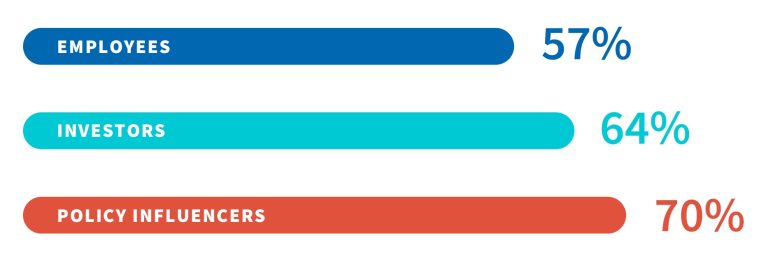
Stakeholder expectations on what CEOs should prioritize in their companies:
CEOs will continue to play an outsized role in a company’s overall reputation, and a carefully crafted communications and engagement strategy is critical. Stakeholders continue to demand that CEOs engage regularly, and there are no signs of this trend letting up.
Our research continues to demonstrate that a CEO is the primary driver of a company’s reputation. Knowing the critical role reputation plays in stakeholder decisions to buy from, invest in or work for a company, it’s a tall order for those at the top. The most successful CEO communications and engagement programs are rooted in business strategy and consider the unique needs of critical stakeholder groups. When done right, these programs can enhance reputation, mitigate risk and drive value."
Assessing CEO communications in relation to corporate reputation, here are the stakeholders' expectations:
CEOs will continue to face pressures to speak out on societal, cultural and political issues, but they must continue to tread carefully and consider the diverse views and perspectives of different stakeholder groups, as well as the company’s purpose and values.
Stakeholders are sending a clear message. They only want to see executives speak out when an issue explicitly threatens their employee base or their operations. Without carefully considering the reaction of your stakeholders, the decision to speak out can be consequential for your company’s reputation."
Examining CEO engagement on political and societal issues, the stakeholders believe:
The Beltway audience is steadfast in its belief that businesses should stay out of politics. However, they do expect a closer partnership when it comes to the economy and job creation. These common goals are shared across the political, investment and workplace arenas and will be key battlegrounds as we approach the next election."
Stakeholders have spoken on which current event topics they believe CEOs should publicly engage:
How We Can Help
FTI Consulting’s team of experts helps CEOs to build the skills and capabilities needed to lead in the current environment. We help executives navigate the competing demands of different stakeholders and create a roadmap to engage authentically and effectively.
- Engagement and visibility
strategy and roadmap
development - Societal issues preparedness
- Thought leadership platform
and narrative creation - Content creation and
speechwriting - Digital channel development
and management
- C-suite, board and
leadership excellence - Vision and strategy articulation
- Employee engagement and
internal communications
- Communications and
media training - Leadership development
- Executive coaching
- Change leadership
About this Survey
This research was conducted online by FTI Consulting’s Digital & Insights team, among three distinct audiences:
- n=800 full time employees working for large companies with more than 250 employees and based in the United States.
These respondents reflect companies employing a total sum aggregate of 3.9 million staff across the United States. - n=250 global institutional investors, representing institutions with an average of $125bn in AUM.
- n=200 D.C. policy influencers, defined as those with experience working in a government
institution, think tank, trade association, political party, campaign or issue advocacy.
All research was conducted between the dates of January 18 – February 1, 2023. Per the standard convention of rounding, some totals may not add up to 100%.
For any questions relating to the survey methodology, please contact [email protected].
1 “CEO Leadership Redefined,” FTI Consulting, Inc. (2021), https://fticommunications.com/wp-content/uploads/2021/12/FTI-Consulting-CEO-Leadership-Redefined.pdf.
The views expressed in this article are those of the author(s) and not necessarily the views of FTI Consulting, its management, its subsidiaries, its affiliates, or its other professionals.
©2023 FTI Consulting, Inc. All rights reserved.


